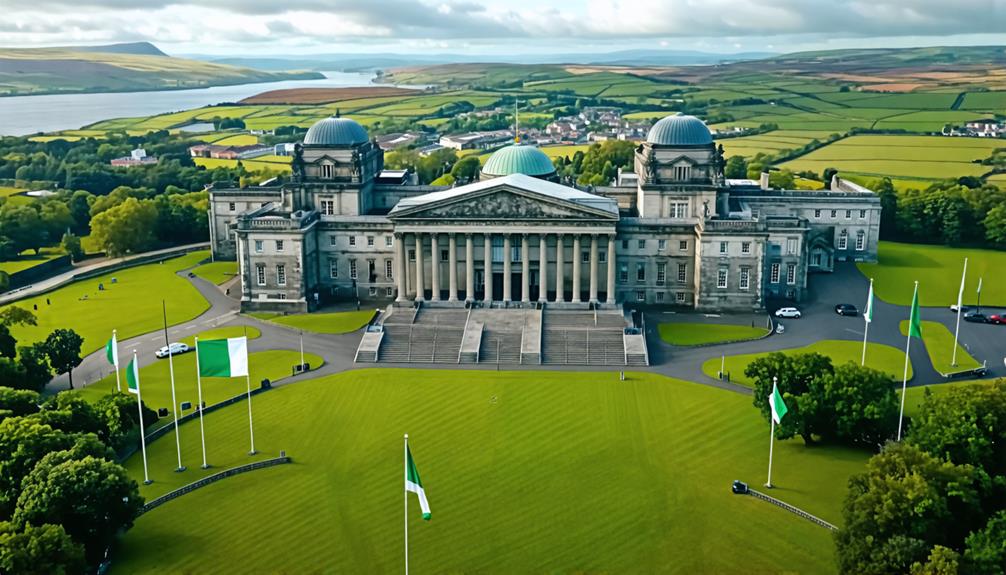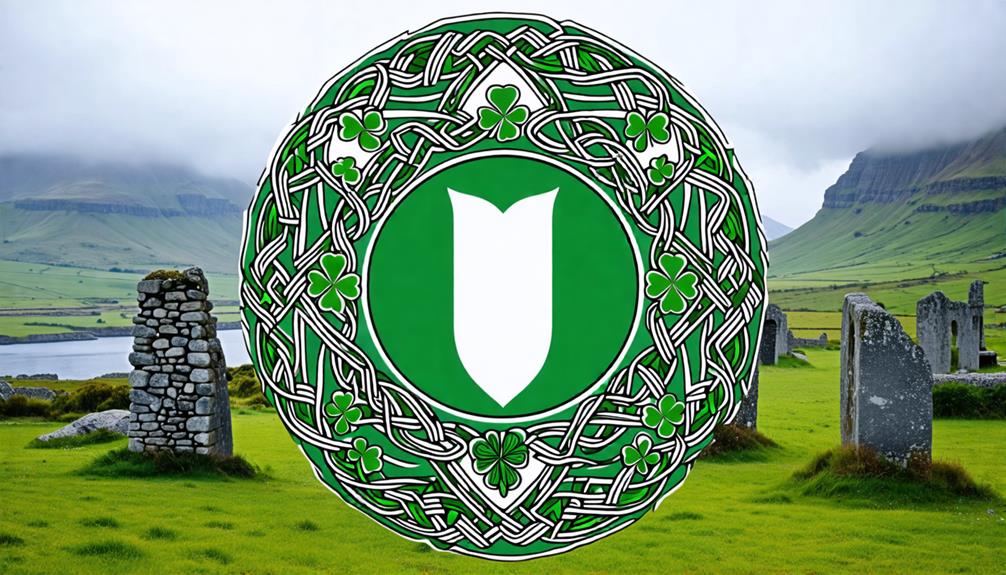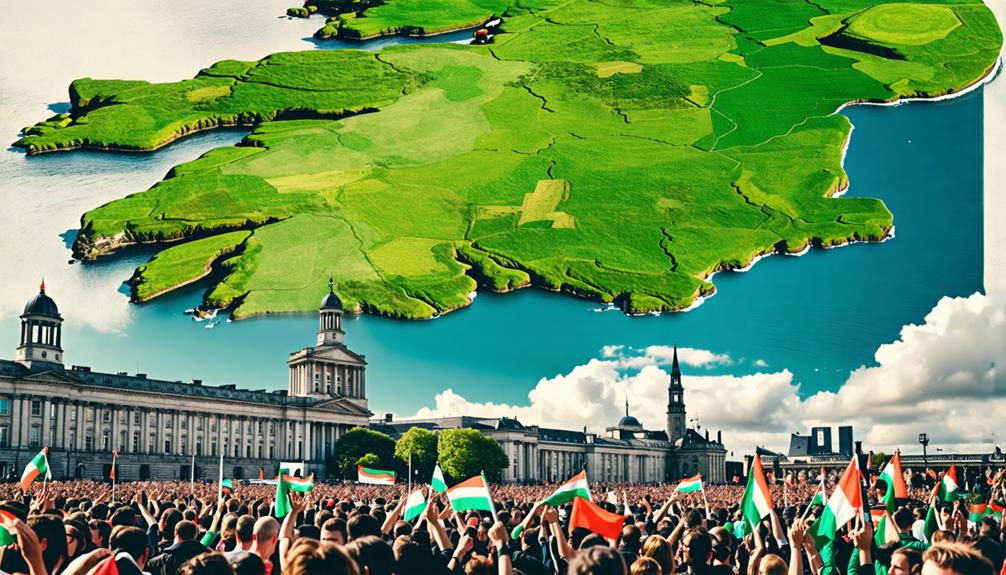Imagine an Ireland that never experienced the partition of 1921. In this alternate history, the entire island remains united under a single government. How might this have changed the course of Irish history?
The absence of partition would have profoundly impacted Ireland's political, economic, and cultural trajectory.
A unified Ireland might have navigated the challenges of the 20th century in a dramatically different manner, potentially altering the nation's relationship with the United Kingdom and the wider world.
Political Landscape

In an alternative history where Ireland gained independence from the United Kingdom, the political landscape would have shifted significantly.
One theory is that a unified Irish parliament would have emerged, focusing on crafting a constitution and establishing a new government. It could have meant changes to political parties, which would have realigned to focus on issues like economic development, social welfare, and foreign relations.
The absence of partition would have greatly altered the dynamics of Irish politics.
Interestingly, in 1949, Ireland did gain independence from the United Kingdom, but as the Republic of Ireland, with Northern Ireland remaining part of the UK.
Economic Development
If Ireland had gained independence earlier, it would have faced significant challenges in developing a self-sufficient economy. One theory is that the new nation would have focused on key industries like agriculture, manufacturing, and trade to support economic growth. The government likely would have needed to establish policies and infrastructure to attract foreign investment and encourage entrepreneurship.
While this scenario didn't occur during the period in question, Ireland did eventually gain independence in the early 20th century. It's possible that an earlier independence could have meant changes to Ireland's economic trajectory and its relationships with other nations.
However, it's difficult to predict exactly how things would have unfolded, and there are various possible outcomes to consider.
Cultural Identity

In an alternate history where Ireland gained independence earlier, the nation would have faced the challenge of forging a distinct cultural identity while managing complex relationships with Britain and the wider world.
One theory suggests that Ireland would have strongly embraced its Gaelic roots, language, and traditions. However, it's also possible that Ireland would have struggled to balance its unique heritage with the influences of modernity and globalization as it navigated its place in a global context.
It's worth noting that Ireland did gain independence from Britain in 1922, although this was later than the scenario mentioned. The actual historical events following Ireland's independence, such as the Irish Civil War and the partition of Ireland, would likely have played out differently in this alternate timeline.
International Relations
In this alternate timeline, an independent Ireland would have faced a delicate balancing act in its diplomatic relationships.
One theory is that Ireland would have sought to maintain strong ties with Britain while also asserting its sovereignty on the global stage.
It's possible that Ireland would have pursued EU membership earlier and taken a more active role in international organizations to bolster its global influence.
However, it could have also meant changes to Ireland's relationship with Britain, potentially leading to increased tensions or cooperation, depending on how events unfolded.
While this specific scenario didn't occur, similar situations have arisen in other countries that gained independence later in history, such as India and Pakistan after their independence from British rule in 1947.
Religious Tensions

In an alternate history where Ireland gained independence, religious tensions between Catholics and Protestants could have continued to be a significant challenge.
One possibility is that debates over the role of religion in government and public life would have been prominent, potentially leading to struggles over religious freedom and equality.
It's conceivable that efforts at interfaith dialogue might've been pursued to try to build understanding and reduce conflict, but the effectiveness of such efforts would have been uncertain.
While this specific scenario didn't occur, similar religious tensions have played out in other newly independent nations throughout history, such as in the partitioning of India and Pakistan in 1947.
Social Reforms
If Ireland had successfully established independence earlier in its history, it may have pursued various social reforms aimed at creating a more equitable society. One theory is that the new Irish government would have prioritized expanding access to education, implementing universal healthcare coverage, and establishing a robust welfare system to support vulnerable populations.
It's possible that an independent Ireland would have also strengthened labor protections, such as promoting unions and ensuring fair wages and safe working conditions for workers.
While Ireland did eventually achieve independence in the early 20th century, an earlier success could have meant that these reforms were implemented sooner, potentially leading to a different trajectory for the nation's social and economic development.
Conclusion
Oh, you thought an undivided Ireland would've been a utopia? That's cute.
Sure, they might've had their act together politically and economically, but let's be real – the Irish would've found something else to fight about.
Maybe they'd argue over whose Guinness pour was better or who'd the most potatoes.
And don't even get me started on the religious tensions.
But hey, at least they'd all be equally poor and oppressed together!

Leave a Reply